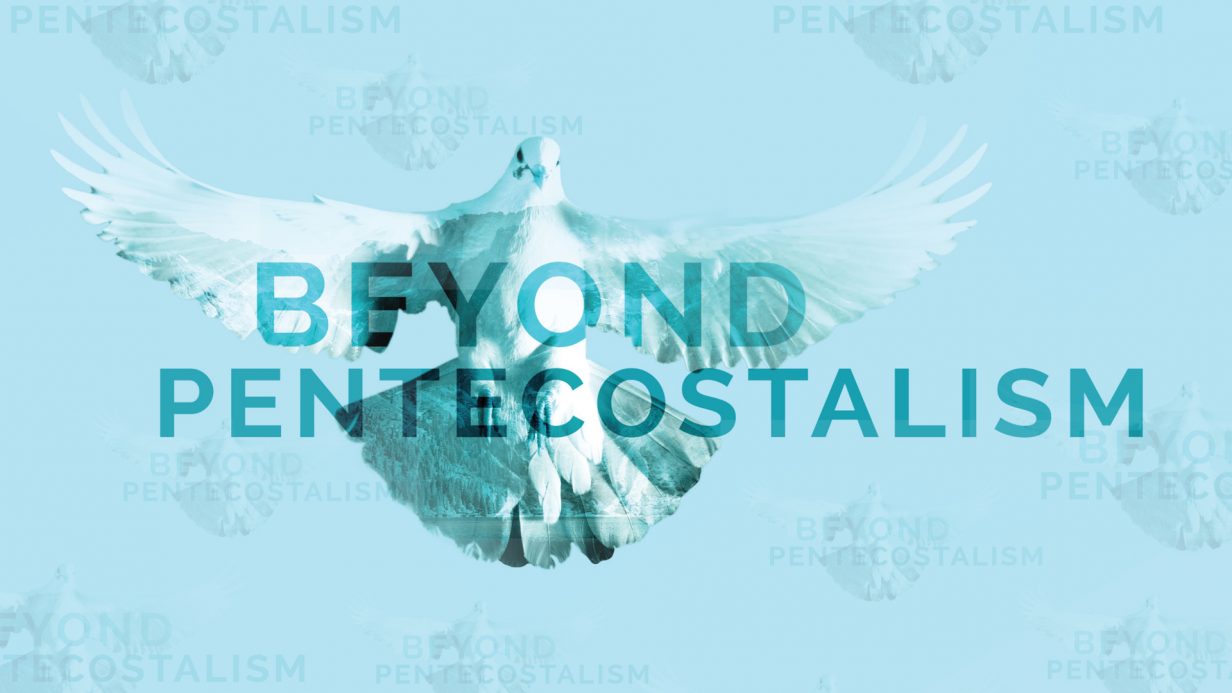
Dr. Wallace Pratt | IOU Region and Navajo Nation Overseer
A man named John asked me one day if I had ever experienced the baptism of the Holy Spirit. The answer was not difficult. I had received the Holy Spirit baptism when I was only eight years old. When I began to explain to him what happened that Friday night many years ago, he was genuinely captivated by the event. Rehearsing this important week in my life was a joy. I accepted Jesus as my Savior on Monday night in a revival service (May 4, 1959); the indwelling of the Holy Spirit in me occurred later that same week. When I mentioned speaking in tongues as the Spirit gave the utterance, his face lit up. He replied to me, “Thank you for telling me and thank you for confirming my own experience.” He then told me he had been praying for several weeks after being born again to understand Pentecost in the Bible. Then one day while praying and walking in a Wisconsin cornfield, he began to glorify God and this power came upon him like nothing he had ever experienced. He began to stagger around in the cornfield and started speaking in a language he had never known or heard. When he left the cornfield that day, he went straight over to the farmer’s house and paid him for all the corn he tramped to the ground. He just wanted someone else to hear his story about this glorious indwelling that changed his life. The Spirit pushed him to talk to all his neighbors and tell them about Jesus; he said, “the Holy Spirit drove me to go beyond Pentecost.”
The Holy Spirit (Greek-pneuma) is the third person of the Trinity. He is incorporated or involved in every activity of God, from creation to our glorification in the final rapture of the believers. The Holy Spirit begins His involvement with each person prior to the individual’s repentance to God and the subsequent act of being born again. No person can even come to God unless the Holy Spirit convicts and draws him or her to the Lord. The Spirit is the drawing (persuading) force that causes one to be convicted of their sin: “Nevertheless I tell you the truth. It is to your advantage that I go away; for if I do not go away, the Helper will not come to you; but if I depart, I will send Him to you. And when He has come, He will convict the world of sin, and of righteousness, and of judgment: of sin, because they do not believe in Me; of righteousness, because I go to My Father and you see Me no more; of judgment, because the ruler of this world is judged” (John 16: 7-11, NKJV). As you will note, one of the purposes of the coming of the Pneuma was to lead sinners to Jesus Christ.
Therefore, when a person accepts Jesus Christ as their Savior, they are regenerated immediately by the Holy Spirit into new life. “But when the kindness and the love of God our Savior toward man appeared, not by works of righteousness which we have done, but according to His mercy He saved us, through the washing of regeneration and renewing of the Holy Spirit, whom He poured out on us abundantly through Jesus Christ our Savior, that having been justified by His grace we should become heirs according to the hope of eternal life” (Titus 3:4-7). As believers, God pours His mercy upon us and through the Holy Spirit regenerates us into new life in Christ. But we should not assume by this that Paul is speaking of the baptism of the Holy Spirit. (This is an initial spiritual change, not an empowering process that comes as we grow in the Holy Spirit; however, there are unique situations where empowerment has come simultaneously or immediately after regeneration and sanctification.) Instead, we receive an earnest of the Spirit (2 Corinthians 1:22, 5:5); this is a deposit (of the abiding presence of the Holy Spirit) that we need to submit to for His full out-pouring in our lives that occurs with the baptism of the Holy Spirit. For example, when buying a home in many nations, earnest money does not complete the full transaction that makes it your home, but only seals the agreement that you will receive it and that the owner will soon give you the full possession of the property. So it is with the Holy Spirit, we must allow the Pneuma to grow within us so that we can one day walk in the fullness of the Holy Spirit (Ephesians 1:13-14).
Scriptures may have different terms used in the original Greek text that can hold different meanings and applications that are often ignored by those who resist the reality of this Pentecostal experience. For instance, in 1 Corinthians 12:13, Paul is speaking about Pnuemati. The baptism spoken of here is not for “indwelling power,” but is a positional work of the Holy Spirit that places believers into the body of Christ intrinsically. (One still would want to extrinsically covenant themselves to a local church as the ecclesia (Church) of God, in order to make a public declaration of uniting with other believers.) Henceforth, the term for baptism is baptisthemen. This is different than the agiou pneumatos (empowering) of the believer promised in Acts 1:8. Furthermore, unlike the baptism into one body, Holy Spirit baptism that occurred for the first time at Pentecost (Acts 2:4) was accompanied by spiritual manifestations such as speaking in tongues. These baptismal manifestations are also recorded in Acts 4:31, 10:44-46, and 19:1-6. In regard to this latter baptism (pneuma hagion), the Scripture contains an unusual statement that they were believers, but not yet filled with the Holy Spirit. In these four instances, after being baptized with the Holy Spirit, they are found to speak in tongues (glossalia) as the Spirit gave the utterance. This is not mentioned in the baptism in 1 Corinthians 12:13, so it cannot be the same kind of baptism.
God honors commitment. If we automatically always receive the baptism of the Holy Spirit intrinsically when we are born again (as some teach), then why the constant admonition by Paul for us to continue to walk in the Spirit? (Romans 8:1, 4; Galatians 5:16, 25). Simply stated, this is a lifetime pursuit that takes us deeper into our relationship with Jesus Christ. This brings me back to the elderly gentleman named John and what he had finally said to me, “The Holy Spirit drove me to go beyond Pentecost.” Pentecostalism is one of my favorite subjects to study or teach students about, but that humble man tapped into a truth we all need to embrace more in our lives as Spirit-filled believers. While he rejoiced over what God did that day in his life, he also grasped a monumental truth that many have failed to pursue as a part of “walking in the Spirit.”
Pentecostalism is more than a moment of ecstasy, laughter, crying, dancing, speaking in tongues, healing, or prophesying, though these are real manifestations that believers should experience and embrace. Walking in the Spirit means going beyond Pentecostalism. Like Peter, John, and a host of others that were baptized that wonderful morning in Jerusalem, there are thousands of souls to preach to, there are cripples at the gate that need healing, there are wonders and miracles to be wrought, there are prison doors to be opened, and there are unclean spirits to be cast out. Pentecostalism is not just a goal line to cross for a believer; it is a starting point to a great race to win the lost. Pursue all the blessings of the Pneuma in your life!

